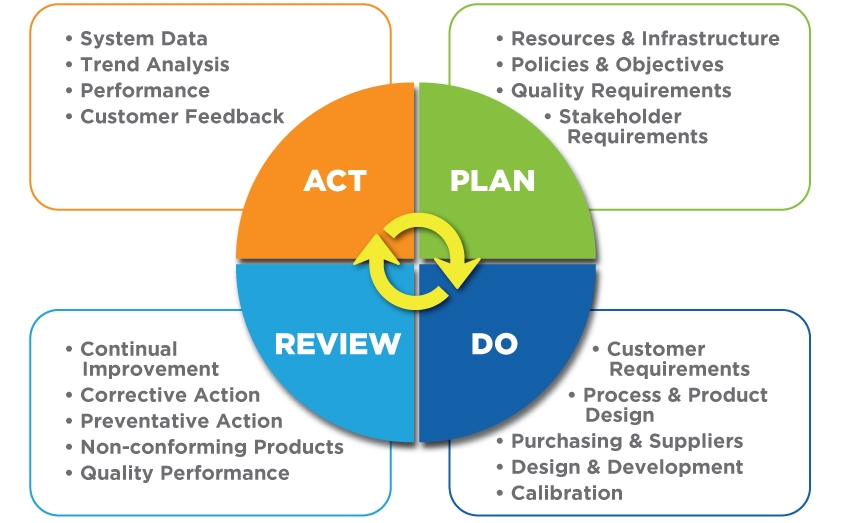Our Quality Management System
Always improving the overall performance of our company
JB Spatial has developed and implemented a quality management system (QMS) in order to document the company’s best business practices, to better satisfy the requirements and expectations of our customers and to improve the overall performance of the company.
The JB Spatial QMS meets the requirements of international standard ISO 9001:2008. This system addresses the design, development, production, installation and servicing of the company’s products.

JB Spatial monitors, measures and analyses relevant processes and takes action to achieve planned results and to deliver the continual improvement of our products, services and our management system.
The four key process groups of our QMS are:

Framework for Managing Quality
Our Company's Eight Quality Management Principles
At JB Spatial we adopt the eight quality management principles that are defined in the ISO 9000:2005, Quality management systems – Fundamentals and vocabulary, and in ISO 9004:2009, Managing for the sustained success of an organisation – A quality management approach. We apply these principles to improve the performance of our company.
Principle 1 – Customer focus
Our company depends on our customers (clients) and therefore should understand current and future customer needs, should meet customer requirements and strive to exceed customer expectations.
Principle 2 – Leadership
The leadership within our company establishes the unity of purpose and direction of the organisation. The leaders should create and maintain the internal environment in which people can become fully involved in achieving the organisation’s objectives.
Principle 3 – Involvement of people
People at all levels are the essence of our organisation and their full involvement enables their abilities to be used for the organisation’s benefit.
Principle 4 – Process approach
A desired result is achieved more efficiently when activities and related resources are managed as a process.
Principle 5 – System approach to management
By identifying, understanding and managing interrelated processes as a system within the company will contribute to the organisation’s effectiveness and efficiency in achieving its objectives.
Principle 6 – Continual improvement
Continual improvement of the overall company performance is a permanent objective of our organisation.
Principle 7 – Factual approach to decision making
Effective decisions are based on the analysis of data and information and it is important to make a correction, and take corrective and preventive action as required.
Principle 8 – Mutually beneficial supplier relationships
Our company and our suppliers are interdependent and a mutually beneficial relationship enhances the ability of both to create value for our customers.
